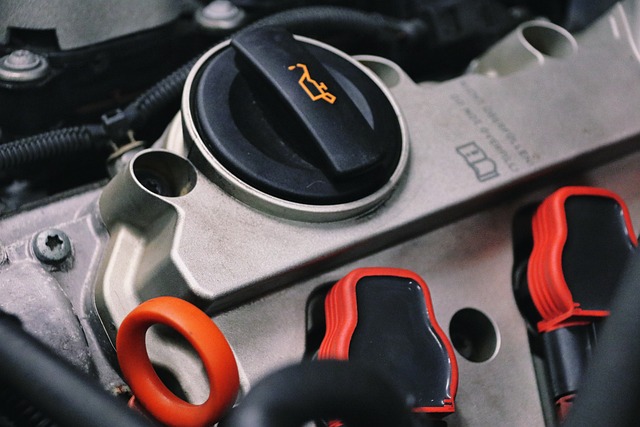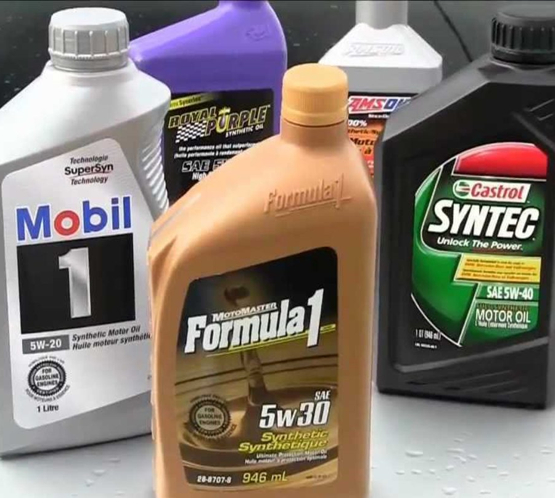Every engine oil will have its viscosity grade labelled on the packaging. This will look something like 0W-20, 5W-30 or 5W-40. This grading is used to measure how thick / fluid the oil is and help ensure you buy the right oil for your car. The lower the viscosity grade of the oil, the more fluid and thinner it will be than those with a high grade (higher numbers) which will be much less running and thick.
When topping up or changing your cars engine oil it is really important that you use the correct type of oil.
If you’re unsure which engine oil your car or vehicle needs, the manufacturer will always provide the information in the car service manual. However, to save you time and effort 'What Car Oil' has done the research for you and we have a comprehensive list of every car make, model and trim along with the engine oil you need to use.
With so many different types of oil available it's easy to be confused about what is the right oil for your car. Some of the most commonly asked questions people want to know are "What is the right oil for my car?", "Should I use synthetic or mineral oil in my car?" and "What weight of oil should I use?". With WhatCarOil.com finding out the answers to this question has never been easier. You can simply browse our list of car makes, models and trim levels to find the right oil for your car.
If a car runs out of engine oil or if the engine oil is not changed regularly, it can lead to serious problems with the engine. Without sufficient lubrication, the moving parts of the engine can rub against each other, causing excessive wear and eventually leading to engine failure.
In addition to causing wear and damage to the engine, running a car with no or low engine oil can also result in overheating. Engine oil helps to dissipate heat away from the engine, and without enough oil, the engine can become too hot, potentially causing damage to the engine or even a fire.
If you suspect that your car is low on engine oil or if the oil light comes on, it is important to check the oil level and add more oil as needed. If the oil level is too low or if the oil is dirty or contaminated, it is important to change the oil as soon as possible to prevent damage to the engine.
It is also important to follow the recommended oil change intervals and use the correct type and viscosity of oil for your particular make and model of car to ensure that the engine is properly lubricated and protected. Failing to do so can result in serious problems with the engine and can potentially lead to costly repairs or even engine failure.

Engine oil is a lubricant that is used to reduce friction and wear on the moving parts of an internal combustion engine. It is typically made from a base oil that is refined from crude oil and mixed with various additives to improve its performance and protect the engine.
Yes, every car needs engine oil to function properly. Engine oil is a lubricant that is used to reduce friction and wear on the moving parts of an internal combustion engine. It serves several important functions, including lubrication, cooling, cleaning, sealing, and protection.
Oil is an essential part of an engine. Without oil, the engine and ultimately the entire car would not run properly. The oil performs a number of critical jobs in the engine: lubrication, protection against wear and corrosion, cooling and much more. However, an engine oil is not always just an engine oil, but varies in its composition. The engine for your car can therefore require mineral oil (base oil obtained directly from petroleum), semi-synthetic oil (mixture of mineral oil and synthetic oil) or fully synthetic oil (oil produced synthetically).
In addition to the different production methods, viscosity is an important factor. A viscosity of 0W is currently the thinnest oil for a car. The higher the viscosity, the thicker the oil. However, when looking for the right oil for your car we need to look beyond just the viscosity. For example, for 10W oil we have grades such as 10W-30 or 10W-40. This secondary code designates a multi grade oil. A single-use oil like 10W is primarily designed for certain months of the year. A multi grade oil like 10W-40 is designed for a whole year.
The specification for an engine oil is synonymous with the viscosity. The best known include SAE and ACEA. Guidelines and values for an oil set by car manufacturers or institutes, a motor oil may only bear this label if it satisfies the predefined guidelines.
So if you know that your vehicle requires an engine oil with a certain viscosity and a specification such as SAE or ACEA, the only question left for you as a buyer is which brand to choose. Brands like Liqui Moly or Castrol are often used because their reputation promises high quality. So is only Liqui Moly or Castrol motor oil good for your vehicle? Definitely not! Our website will help you findcaroil for any make, model and year of car.


